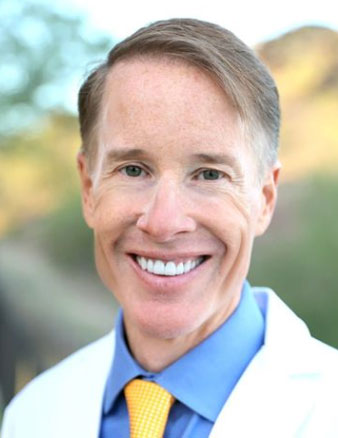Do you feel like your diet is affecting your thyroid? It probably is. Today, I want to explore the relationship between the keto diet and hypothyroidism. Particularly, how keto and thyroid health might be more connected than you might think (and not in a good way).
I often get questions and concerns from folks that leave a lasting impact on me. Today, I want to address one of those messages in order to give you a thorough understanding of the relationship between keto and hypothyroidism (and what we might call “keto-induced hypothyroidism”).
Understanding Diets: The Basics
First, let me preface this by saying that there are many folks who have done keto diets and had legitimate benefits. There are stories of those who have:
- Lost weight
- Optimized their cancer recovery
- Diabetes-related benefits
I am a big fan of taking your health into your own hands, and really owning your success. When you look at your diet, and consider food like medicine, I think that’s a great step in the right direction. Because what you eat can have a profound effect on how you feel.
You may have experienced some amazing improvements from this diet. That said, there are lots of other people out there who have experienced the same. Except, on completely different diets!

Key Insight: You may have heard someone saying how well they performed on the ketogenic diet. But, you are just as likely to see someone else saying the same about a vegan diet.
Common Problem with Diets
This is the problem that I have with diets like these (and the benefits therein). The idea that there is a special formula, a magic bullet, or a cure-all that is “breaking,” “hacking,” or “switching” in some way. It really does not work out like that.
There are definitely some themes that we can see in each of these popular diets. Things like:
- Getting more high-quality food
- Enjoying more fiber
- Reducing our total food intake
Bottom Line: Commitment, excitement, and confidence can only take you so far on a new diet (when it is not formatted properly). As long as we stick to the evidence, we often making the right decision for our lives.
Keto Diet: A Primer
Before we get into today’s question, I do want to give you a quick briefing on the keto diet for hypothyroidism. What it entails and some of the basic information that you need to know…

Here is the general mindset behind the keto movement is that if you put your body into a state of ketosis, you are going to trigger a chain reaction where your body is burning up fat faster than you can supply it. This results in shedding pounds like it is nothing.
It is the idea that eating these ketogenic foods will inform a process in your body, where you will:
- Lose Weight
- Feel Healthy
- Have Better Brain Function
A ketogenic diet can be understood as where your only fuels force you to burn fats in a way that makes ketones. Now, your body burns fat best when it also has some carbohydrates and some protein.
The ketogenic diet is one that forces the body to use ketones for fuel. This is because too little fuel is available from carbs and proteins.
Fats can be burned as fuel, but only when carbs and proteins can provide OAA (oxo acetoacetate). Without them, fats are converted to ketones.

Bottom Line: The big promise of the ketogenic diet only leads to weight loss if there is a fuel deficit in your body. This means that there really is no chain reaction. It does not inspire your body to start burning up fat out of control.
Question: Keto Curious
Today’s case study is based on a question that I got from a reader, who asked the following:
“Hi Dr. C – my TSH went from 2.9 to 8.31 after I went on a keto diet to lose weight. After, I quit the keto and it won’t go down. I feel weak, cold and have dry peeling skin. What I have is a lot of self-blame and worry that keto may have caused this. What should I do?” – Unknown
First and foremost, if you feel like your thyroid is not where it needs to be – I would recommend getting a comprehensive read on your situation here…
Let me start by thanking you so much for writing in and reaching out for help. I have also written posts in the past about the keto diet and thyroid disease (Read: Is the ketogenic diet safe for those with thyroid disease), as well as a more comprehensive primer on being “keto curious” and the science behind ketogenic diets. Please feel free to start off here!
How the Keto Diet Works
Moving on, though, let’s dig into this question in greater detail. The most important thing worth mentioning is that, the keto diet on its own will not result in lasting thyroid disease.
A lot of data, though, shows that a keto diet will cause what we know as hypothyroidism (where the body is not creating enough thyroid hormone).
This results from a collection of factors, including:
- Low levels of insulin
- Changes to the gut flora
There is also a response that the body does to intentionally slow its metabolism. In response to ketosis, it will do this and suppress the body’s usage of T3, too
Key Insight: That’s right, ketosis will slow your metabolism. You are not speeding up your metabolism by going into a ketogenic state, and you are not even burn fat better. Instead, your body is burning ketones and your body’s response is to shut down its metabolism.
Can Hypothyroidism Reveal Hashimoto’s Disease?
With all that in mind, it is true that many things that cause hypothyroidism can unmask Hashimoto’s in the body.
So, if someone does have a tendency towards making thyroid antibodies, something like:
- High doses of iodine
- A high dose of lithium
- An extremely low-carb diet
These are all things which could create a temporary state of hypothyroidism. That means that if someone’s immune system is just waiting to pounce. That is common when it starts (because of the fact that it is truly the perfect storm taking place in the body).
Specific Considerations

In the context of this case study, there are a lot of other things that we might need to consider. The first thing is the TSH score (Should you ignore your TSH). Before this began, according to the question at hand, our writer’s TSH score was above.
It is unusual to have a score above 2 at this period of time. This could be an early stage of Hashimoto’s disease, even before going on the ketogenic diet.
In this case, it would also be helpful, to have a better understanding of thyroid antibody status. It would help to know if they were low before and high afterward, or otherwise.
What makes thyroid antibodies so important? They are actually key in showing if someone has Hashimoto’s disease.
Moreover, tracking and thinking about the nature of antibodies, and thinking about what controls them, can give us some great and important insight into the state of our health (Read: The 4 things you need to know about thyroid antibodies).
The Pitfall of Thyroid Antibodies
The pitfall of thyroid antibodies is that they do not go up, even when there is thyroid autoimmunity present. This is due to the random nature of thyroid antibodies.
While the presence of thyroid antibodies can confirm that you have Hashimoto’s disease, lacking them does not rule out Hashimoto’s entirely.
If you have heard this before from your doctor, it might be that they are not operating as extensively as they should be.
Bottom Line: The truth is that, while the keto diet may not have helped, it is possible that our writer’s state may have happened regardless.
Action Steps
The first thing that I would advocate for is to not beat yourself up about something like this. There has to be about a million examples of hindsight being 20-20.
The truth is that we are all trying our best, and trying to do what is right by our bodies with the information we have.
Benefitting from the keto diet is obviously something very attractive to those who want to lose weight, or who want to have relief from various complications. It is completely fine to feel this way, but it does not mean that it will work for you.
Here is what I would suggest, in this specific case, moving forward to address your health…
Full Testing
Test, don’t guess! (Read: How to test your thyroid, the definitive guide) Seeing a doctor who specializes in the thyroid, and my team at Integrative Health would be happy to help, is a great start. You will want to consider:
- Thyroid exam
- A Thyroid ultrasound
- Thyroid antibody levels
- Free hormone testing
- Reverse T3 testing
- Thyroglobulin testing
Key Insight: A really thorough evaluation of your thyroid status is a great place to start. That way, you can get a clearer picture of where you stand in your health. It can really help you unlock doors in your journey to optimal health.
From there, it is also smart to make sense of the things that place stress on your thyroid. These include:
Key Nutrients
How much do you know about the nutrients that you need? Specifically, you should consider your levels of:
- Selenium
- Magnesium (9 Reasons magnesium can restore your energy levels)
- Vitamin D
Feel like you need to get your diet in order? Here’s something I think you should consider…
Avoiding Iodine
I have profiled before how important it is to keep your iodine levels in check. I would love for you to learn more about it and what it means for your health. (Read: How much iodine do you need for thyroid disease)
Key Insight: Iodine is a pretty unique mineral, and I like to call it the “goldilocks mineral” – you can’t have too much, or too little, instead your levels need to be just right.
Optimizing Your Diet
Your diet is so important to your overall health, that’s why you need to ensure that you are eating the right way for your body. One of the most important things you can do is to keep your good gut flora in check.
Key Insight: Think about adding more resistant starch (RS) foods to your diets. They can certainly help raise your energy levels, and are easy to incorporate into just about any diet – alongside any lifestyle. (5 Amazing ways resistant starch can boost your energy)
Understanding Cortisol
Your cortisol levels, and what we call your “cortisol slope” plays a large role in how you feel on a day-to-day basis. When you have a better understanding of where your cortisol is at, you can start to make decisions for the betterment of your health. (Read: 9 Proven ways cortisol causes heart disease and solutions)

Big Picture: Keto-Induced Hypothyroidism
It is possible to get back to how you are feeling before, if not better, but you need to recognize that and take the appropriate action steps.
When you do that, you can really start to benefit. In addition, you can feel better – the way should and deserve to feel.
Take the steps to get your health in order, understand where you stand with your thyroid, and try to live a life based on good principles of eating.
This is opposed to jumping from one trendy diet to another. If you start to incorporate more of these basic action steps and principles into your life, the benefits will follow shortly thereafter.
Interested in learning more about your thyroid? I would love for you to start by taking the Thyroid Quiz today (Click Here).
It can really help uncover more about what you deserve to know about your thyroid, and what you can do to start treating it to both regain and preserve your long-term health.

1. Schedule a Thyroid Second Opinion with me, Dr. C, Click Here for Details
2. Download and use my Favorite Recipes Cookbook Here
3. Check out my podcast Medical Myths, Legends, and Fairytales Here
Dr. Alan Glen Christianson (Dr. C) is a Naturopathic Endocrinologist and the author of The NY Times bestselling Adrenal Reset Diet, The Metabolism Reset Diet and The Thyroid Reset Diet.
Dr. C’s gift for figuring out what really works has helped hundreds of thousands of people reverse thyroid disease, lose weight, diabetes, and regain energy. Learn more about the surprising story that started his quest.


